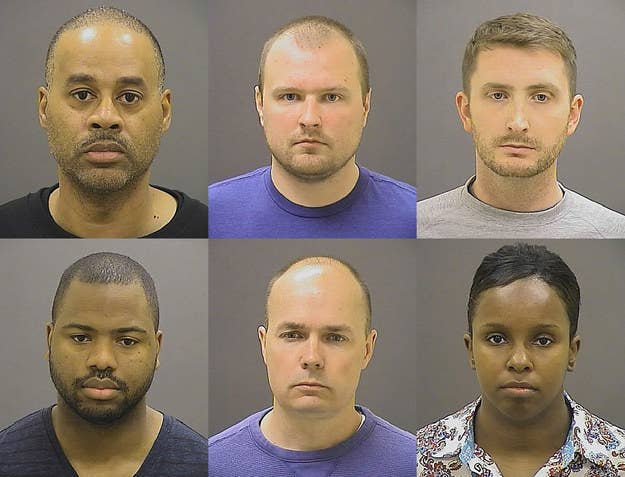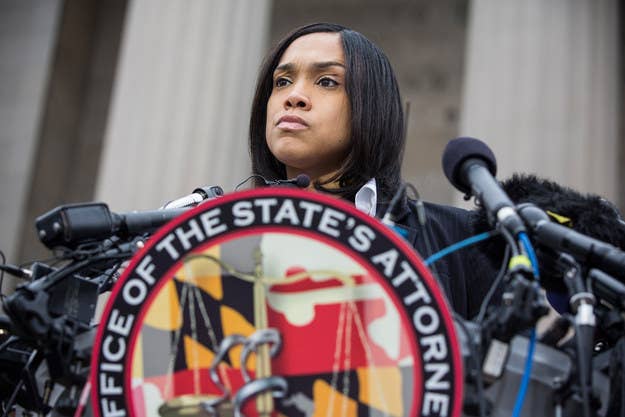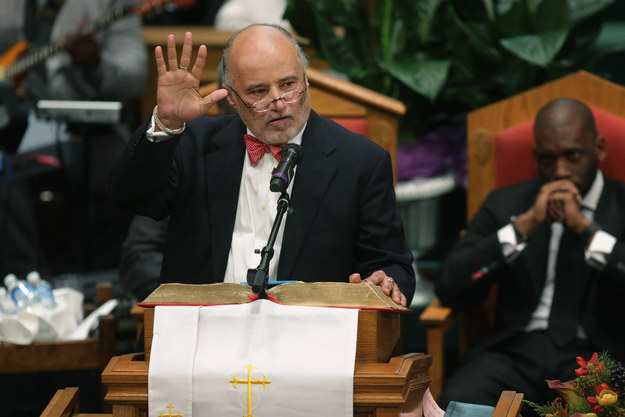
BALTIMORE — A judge decided on Thursday to keep the criminal trials of six police officers accused of killing Freddie Gray in Baltimore, rejecting defense arguments that the level of publicity in the case would make it difficult to find an impartial jury in the city.
"I believe that every citizen of Baltimore is capable to think for his or herself," Circuit Judge Barry Williams told the court in his closing remarks.
Gray, a 25-year-old black resident of Baltimore's impoverished west side, died on April 19 of spine injuries withstood while riding in a police van. His death sparked widespread protests against police brutality and triggered disorder, during which rioters looted several stores and set fire to more than one hundred cars.

The unrest subsided on May 1, when State's Attorney Marilyn Mosby, Baltimore's top prosecutor, announced her intention to charge the six officers involved in Gray's fatal arrest with crimes ranging from murder to misconduct in office. All of the officers pleaded not guilty.
At Thursday's hearing , defense lawyers for the officers argued that their clients had become "poster children" for the anti-police sentiment felt by many residents of Baltimore. They tried to make the case that the city's $6.4 million settlement with the surviving members of the Gray family prejudiced potential jurors.
"We cannot have a single juror who is not a taxpayer and will be paying for that settlement," said Ivan Bates, an attorney for one of the officers. Bates went on to say that jurors will wonder why they are paying, if the officers are not guilty.
Bates vividly recounted the riots that preceded the indictment of the six officers, arguing that the memory of the unrest could push jurors to convict the defendants out of fear that failing to do so could unleash another riot. He also said that Baltimore's witness intimidation problem could have a chilling effect on the jury.
"As they sit in that jury box, they will see their neighbors in the audience," Bates said. "And they will know that they have to find our clients guilty so that they can go safely back into their communities."
The defense also argued that the extensive media coverage of the events, together with Mosby's comments on May 1, prejudiced potential jurors against the officers.
Williams seemed skeptical of some of Bates's arguments.
"So what you are basically saying is we should dismiss the jury system?" the judge asked.
For their part, Mosby's team insisted that the process of jury selection could weed out any partial jurors, ensuring fair trials for all of the officers, asking Williams to keep the case in Baltimore until he could at least ask questions of potential jurors to probe their state of mind.
Chief Deputy State’s Attorney Michael Schatzow argued for the prosecution, saying that the standard to move a case out of the jurisdiction where the crime allegedly occurred is very high.
"The only cases when the court of appeals has said you move a case before voir dire [the process of jury selection] is when you have a very small community and there's an armed lynch mob outside the court," Schatzow said.
Schatzow also argued that a significant portion of the media coverage of the case has been critical of the prosecution, and that it was entirely possible that at least some potential jurors would think the settlement was a good deal that saved the city a lot of money. He called the defense's suggestion that Baltimore's residents are incapable of judging a case on its merits "insulting."
In the end, Williams decided that the defense's arguments did not rise to the necessary level to presume prejudice before even asking questions of potential jurors. He added that the contemporary media landscape makes finding a venue where people have not seen the extensive media coverage surrounding the case almost impossible, reducing the incentive to move the trial elsewhere.
Williams concluded by saying that he would be willing to hear motions from the defense to reconsider moving the trial after the jury selection process.
Before the hearing, there was concern that if Williams decided to move the trial, it could anger activists and community members, who repeatedly said they wanted the officers to be tried in the city. Ever since the court scheduled the hearing, many in Baltimore worried that moving the venue of the trials could trigger unrest like the one seen in April.
A handful of protesters gathered outside the court Thursday morning, chanting "Keep the trial here." Police stationed outside the courthouse will not be wearing riot gear, Commissioner Kevin Davis told the Associated Press.
"That is something we absolutely won't roll out because we don't want to be provocative or draw a line in the sand," Davis said. "But in the event that a peaceful protest goes south, we'll be prepared to appropriately respond to it."
Video showed police arresting a protester holding a sign outside the court before the hearing. It was unclear why she was arrested. Witnesses said the protester was peaceful.
The main stream media was standing right there but where were their cameras? #Baltimore #JusticeForFreddieGray
A group of protesters had also gathered outside of the courthouse last Wednesday, when Williams denied a defense petition to force Mosby to withdraw from the case, but also allowed each officer to have an individual trial.
Last week's protests were short lived, with the peaceful demonstrators dispersing shortly after nightfall.

Earlier this week, the city announced that it had awarded Gray's surviving family members a $6.4 million civil settlement. Billy Murphy, an attorney for the Gray family, told reporters Wednesday that the announcement was meant to have a "calming effect" on the city.
